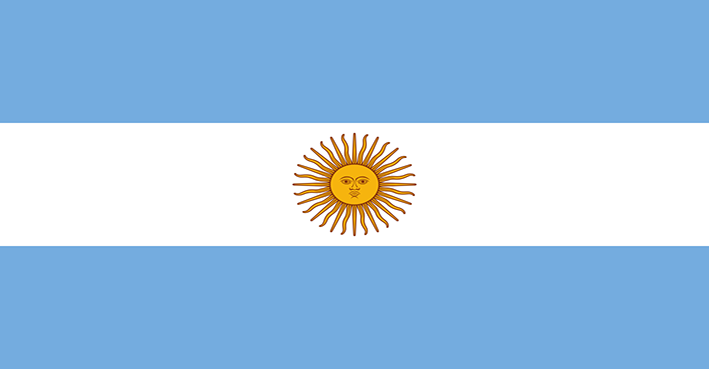
Argentina freezes oil prices amid sell-off: Update

The 90-day freeze on pump prices was announced by President Mauricio Macri early today as part of a package of emergency economic measures that also include expanded social benefits, an income tax cut and a call to negotiate a minimum wage hike, among others.
The government informed the country's main oil companies of the decision late yesterday without detailing how it would be implemented, according to an official from one of the firms.
Following Macri's announcement, the oil companies received a message from the government affirming that crude prices would also be frozen for the 90-day period.
To determine the capped crude prices, all refiners will apply the prices they had already negotiated with producers, according to the official notice which was seen by Argus.
As a reference point, all firms must apply the Brent price of $59/bl and currency exchange rate of 45.19 pesos per US dollar that were in effect on 9 August, according to the notice.
Prior to the announcement, oil refiners in particular had been analyzing how much they would increase wholesale fuel prices as a result of the sharp peso depreciation that began on 12 August and so far shows no sign of bottoming out.
The peso continued depreciating after Macri's announcements this morning, and since 9 August has lost around 25pc of its value to the dollar.
Markets in Argentina are reeling after Macri's main rival for the presidency, Alberto Fernandez, who is running with influential former president Cristina Fernandez as his vice presidential running mate, obtained 47.65pc of the vote, compared to 32.08pc for Macri's ticket, in the 11 August open primary.
Macri reached out to Fernandez this afternoon and said that "he showed a willingness to try to bring calm to the markets regarding the risks of an eventual change in power."
Fernandez said his plan for the government does not include a debt default, but he blamed Macri's government for "planting unexplainable doubts" about his eventual administration.
The two main political coalitions had already selected their presidential candidates, so the primary was widely seen as a harbinger of the 27 October presidential vote.
Most pre-electoral polls had predicted that Fernandez would squeak past Macri, but his margin proved closer to a landslide, suggesting that the Fernandez and Fernandez ticket could avoid a run-off ballot in November. The two are not related.
Investors fear that a victory for Fernandez could translate into a return of the heavy state intervention in the economy that prevailed, particularly in the energy sector, during Cristina Fernandez's back-to-back terms as president that ended in 2015.
Some energy sector executives were quick to note that by implementing the price freeze the government was effectively reimposing an interventionist model that Macri was supposed to dismantle. As under the Fernandez administration, crude prices for the domestic market are now decoupled from the international market.
The business-oriented Macri swept away those differentials as part of a broad campaign to introduce market-oriented policies. His gradual approach to economic reform is now the subject of much criticism by those who had advocated abrupt changes after he took office in December 2015.
Concerns are already mounting over how the government will unwind the price freeze when the measure expires in mid-November, after the election.


Trump weighs using $2 billion in CHIPS Act funding for critical minerals

Codelco cuts 2025 copper forecast after El Teniente mine collapse

Electra converts debt, launches $30M raise to jumpstart stalled cobalt refinery

Barrick’s Reko Diq in line for $410M ADB backing

Abcourt readies Sleeping Giant mill to pour first gold since 2014

Nevada army depot to serve as base for first US strategic minerals stockpile

SQM boosts lithium supply plans as prices flick higher

Viridis unveils 200Mt initial reserve for Brazil rare earth project

Tailings could meet much of US critical mineral demand – study

Kyrgyzstan kicks off underground gold mining at Kumtor

Kyrgyzstan kicks off underground gold mining at Kumtor

KoBold Metals granted lithium exploration rights in Congo

Freeport Indonesia to wrap up Gresik plant repairs by early September

Energy Fuels soars on Vulcan Elements partnership

Northern Dynasty sticks to proposal in battle to lift Pebble mine veto

Giustra-backed mining firm teams up with informal miners in Colombia

Critical Metals signs agreement to supply rare earth to US government-funded facility

China extends rare earth controls to imported material

Galan Lithium proceeds with $13M financing for Argentina project

Kyrgyzstan kicks off underground gold mining at Kumtor

Freeport Indonesia to wrap up Gresik plant repairs by early September

Energy Fuels soars on Vulcan Elements partnership

Northern Dynasty sticks to proposal in battle to lift Pebble mine veto

Giustra-backed mining firm teams up with informal miners in Colombia

Critical Metals signs agreement to supply rare earth to US government-funded facility

China extends rare earth controls to imported material

Galan Lithium proceeds with $13M financing for Argentina project

Silver price touches $39 as market weighs rate cut outlook

















